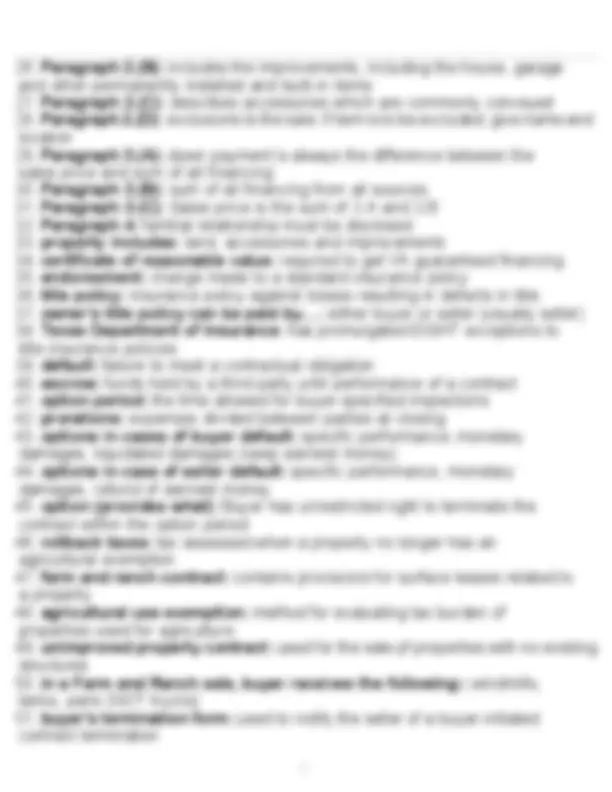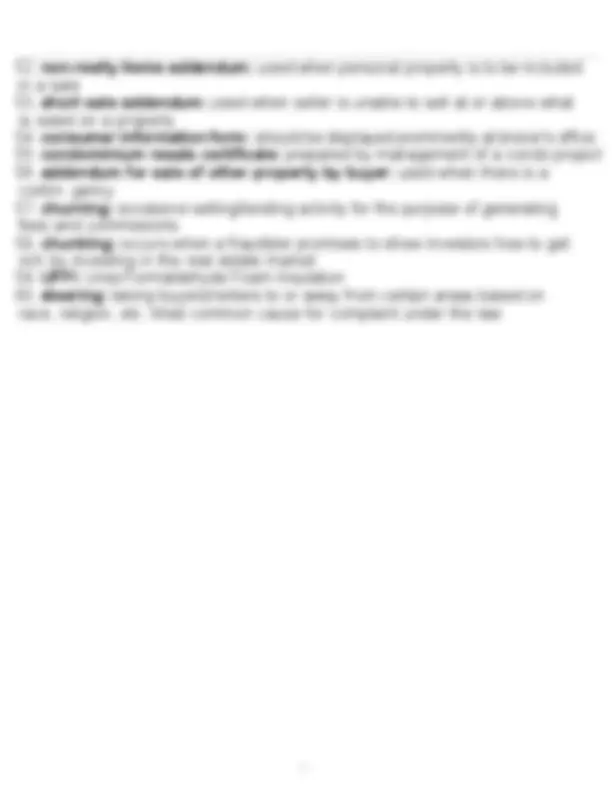1. mutual consent: a "meeting of the minds"
2. unilateral contract: a contract in which only one party is obligated to perform
3. unenforceable contract: a contract that cannot be enforced due to some flaw or
other issue in the contract
4. elements of a valid and enforceable contract: COLIC (competent parties, offer
and acceptance, legal purpose, in writing, consideration)
5. amendment: changes to the contract; common ones include changes to the
closing date, changes to the sales price, down payment or amount finances, repairs
the the seller agrees to perform, removal or waiver of contingencies
6. addenda: an attachment that adds or further describes the rights and duties of
the parties
7. assignment: transfers all of the rights related to the contract to another party
known as assignee
8. novation: when a new contract is substituted fro an existing one
9. statute of limitations: limits the time you may file suit. In Texas, it's two years for
oral agreement and four years for a written agreement
10. reasons for termination: mutual agreement; partial performance; substantial
performance; impossibility; operation of law; breach of contract
11. bilateral contract: a contract of sale between a buyer and seller
12. executory contract: a contract that is binding on the parties, with one or more
of the parties having contractual duties that have not yet been performed
13. promulgated forms: contract forms published by TREC
14. counteroffer: a rejection of the original offer coupled with a new offer
15. offeror: the party making the offer
16. Buyer's or Seller's Temporary Residential Lease: for no more than 90 days
17. offer must be presented...: phone, fax, email, letter, hand delivery
18. options when responding to an offer: do nothing; reject; accept; counteroffer
19. acceptance: means that the accepting party does so with no change to the
contract whatsoever
20. net sheet: an estimate of the net proceeds to the seller and should be prepared
based upon the offer being considered












